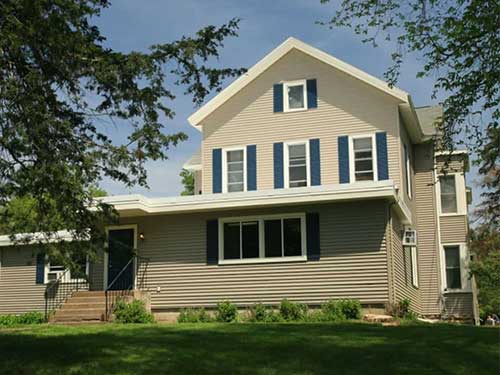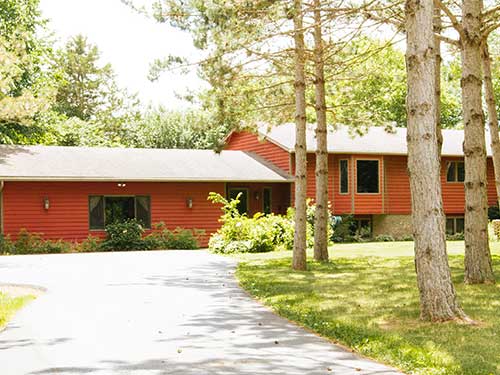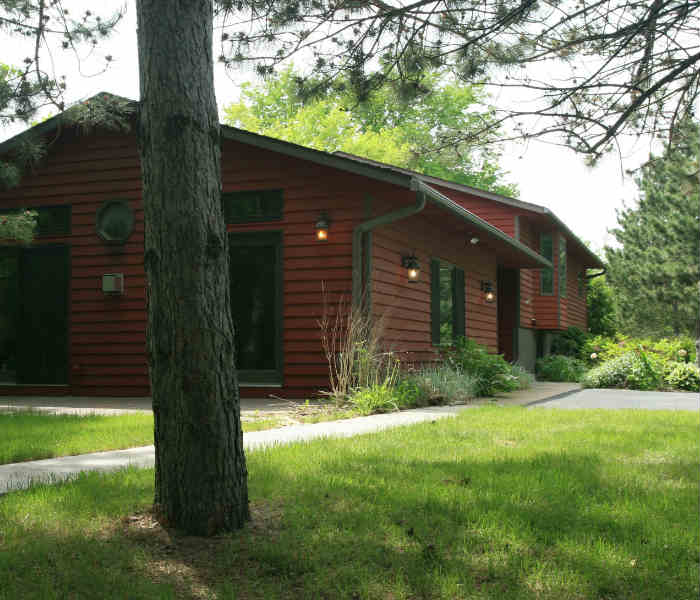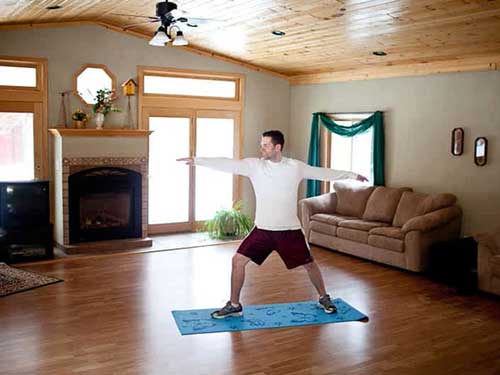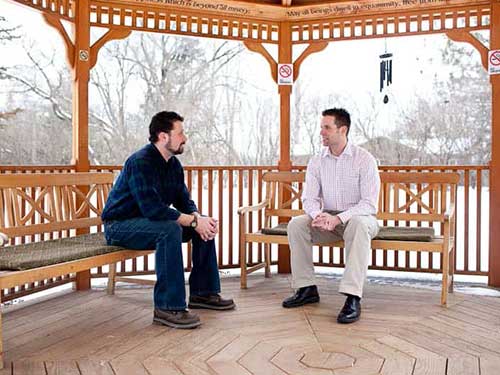Burkwood Treatment Center helps individuals struggling with prescription painkiller addiction build a strong foundation for long-term recovery. Located near Minneapolis – St. Paul, Burkwood is the leading provider of alcohol and drug abuse treatment for adults.
Learn More About Prescription Painkiller Addiction Recovery
Learn about prescription painkiller addiction & rehab at Burkwood Treatment Center
Vicodin, OxyContin, Fentanyl, Opana, and Dilaudid are but a few examples of the numerous prescription painkillers in existence today. When taken under the guidance and supervision of a trained medical professional, opioid medications such as these can successfully alleviate pain and make daily functioning possible. However, when one begins to consume prescription painkillers for the purpose of achieving a high, the resulting effects are far from positive. Over time, tolerance, addiction, and a chemical dependence are likely to form, which can make becoming sober all the more difficult to do without the assistance of professionals who can instill the skills and confidence needed to become sober once more.
At our rehab center, we are fully committed to helping men and women achieve the sober lives they both desire and deserve. Our programming is prepared to address and treat a myriad of chemical dependency concerns, including addictions to prescription painkillers, and we are confident that we can help you or your loved one become well again. In choosing Burkwood as the place to finally leave the addiction to prescription pain medications in past once and for all, a brighter, healthier tomorrow is surely within reach. Treatment of prescription painkillers abuse.
Helping a Loved One
Helping a loved one or family member get into rehab for prescription painkiller addiction
Learning that someone you care about has been abusing prescription painkillers can be an extremely upsetting experience. Especially if you did not observe any obvious warning signs before making this discovery, it can be exceedingly unsettling to realize that someone you care about is addicted to such substances. However, as someone who cares about this individual, there remain some things that can be done to get this person into rehab. Consider the following suggestions:
- Learn about your loved one or family member’s prescription painkiller of choice and become keen on recognizing the signs of intoxication and overdose. It is also a good idea to establish a plan of action for what to do in the event your loved one experiences a medical emergency as a result of his or her substance abuse.
- Have an open and honest conversation with your loved one or family member, but be sure to remain nonjudgmental during this talk. Your loved one or family member may deny the problem or become defensive, so do your best to convey your concern in an empathetic manner.
- Offer to help him or she seeks treatment and does all that you can to empower him or her to begin a program. Be sure to communicate your intentions of support before, during, and after rehab is complete.
- Look into good self-care practices for yourself so that you are able to stay rejuvenated and refreshed to help this important person in your life.
Finally, once your loved one or family has begun a program, it is a good idea to learn what you can do to be part of your loved one or family member’s care. If the rehab center offers family therapy sessions, family weekends, or visitation, do your best to attend as many as possible. By remaining an active presence in your loved one or family member’s life during treatment, he or she may be more motivated to making strides in his or her recovery from prescription painkiller abuse.
Why Consider Us?
Why consider treatment for prescription painkiller addiction at Burkwood near Minneapolis & St. Paul, MN
When used in the context of alleviating pain, prescription painkillers are often perceived as life-savers for individuals who need relief from such discomfort. However, for those who misuse these opioid medications, tolerance, and an addiction can form and can make breaking free from this type of chemical dependency all but impossible to do without professional help. In fact, the longer an individual abuses prescription pain medications, the more likely other facets of his or her life are to be affected adversely.
Similar to other types of addictions, prescription painkiller addiction can cause an individual to neglect his or her work responsibilities, which could lead to financial ruin as time progresses. Additionally, a person who is physically dependent on such substances is also likely to experience discord among close friends and loved ones, since the misuse of prescription painkillers often takes priority over meaningful relationships. With regards to one’s mental health, preexisting mental illness symptoms can become worse, or new ones may manifest the longer this type of substance abuse persists.
Physically, an individual’s overall health can deteriorate and numerous health complications, including overdose, can occur without much warning. Thankfully, there are several options for care that exist that can help to improve the lives of those seeking to overcome an addiction to prescription painkillers.
Types of Treatment
Types of treatment for prescription painkiller addiction offered at Burkwood
When looking for prescription painkiller addiction treatment, you or your loved one may have been searching broadly for “rehab centers near me?” In Wisconsin, there is one clear choice. For over 20 years, our rehab center near Minneapolis & St. Paul, Minnesota has been providing the individualized care needed to help men and women overcome the complex disease of addiction. Our renowned residential program is located in Hudson, Wisconsin, and through the use of evidence-based treatment protocols, thousands of individuals have been able to achieve the sober lives they deserve to be living after receiving care at our center.
Our staff of dedicated and experienced professionals, many of whom are highly trained in the 12-Step philosophy and trauma-based interventions, provide ongoing support and strive to help each person entrusted into our care reach his or her treatment goals. We aim to improve the lives of those who have had their lives impacted by addictions to substances such as prescription painkillers, and we customize our treatment to meet each participant’s needs. By electing to receive care at our rehab center, each man and woman will have a uniquely tailored rehabilitation plan that details the specific interventions that will enable him or her to leave substances abuse in the past. The following interventions are those that make the recovery process at Burkwood one that is distinctive and truly transformative:
Medication management services: Some of the participants who receive care at our center also struggle with co-occurring mental health conditions at the same time as an addiction to prescription pain medications. For such cases, Burkwood employs a contracted psychiatrist who can assess the need for medication and can prescribe this form of treatment when it is deemed necessary to help in the alleviation of mental health symptoms. If a participant is prescribed medication, our mental health technicians, and nursing staff monitors the safety and effectiveness of any medications administered.
Individual therapy: A man or woman in recovery can greatly benefit from being able to process his or her experiences while in treatment. As a rehab center that is dedicated to offering superior care, Burkwood provides its participants with weekly individual therapy sessions so that they are able to talk through emotions, share feelings, and learn new skills that will allow them to overcome an addiction to prescription pain medications.
Group therapy: Cornerstone to care supplied by our center is group therapy. At our treatment center, participants working to recover from the prescription painkiller use disorder are able to further their progress when they have the support of others who understand firsthand the challenges associated with recovery. Led by our staff of devoted counselors, group therapy sessions occur daily, and the following types of groups are among those included in participants’ daily schedules:
- Advanced guided imagery group
- Alcoholics Anonymous (A.A.) speaker meetings
- Banking
- Big Book Study
- Community meetings
- Didactic activity group
- Gestalt/analogy-based therapeutic plays
- Goals group
- Meditation group
- Primary group
- Recovery advocate psychoeducational group
MAAEZ Program: The Making Alcoholics Anonymous Easier, or MAAEZ, Program is a six-week intervention featured at our rehab center. This treatment model takes place in a group format and assists participants with acclimating themselves to the 12-Step philosophy of treating addiction. Our staff will help those entrusted to our care as they navigate the 12-Steps and can provide them with the invaluable support needed to achieve sobriety after battling an addiction to prescription pain medications.
Way of Life System: A method of care unique to Burkwood as well as the Minneapolis & St. Paul area, the Way of Life System is a programming option that enables participants to transition through each stage of their recovery by learning to manage their emotions and cognitions in a healthier manner. At our rehab center, we want to give our participants every advantage when it comes to achieving their treatment goals, and this method of care is proven to help men and women by exposing them to various addiction treatment modalities and disciplines that can help them overcome prescription painkiller use disorder. The Way of Life System includes a manual and audio guides that participants can use to maximize their rehabilitation experience in a meaningful way.
Family therapy: In order to help our participants mend the relationships they have with their family members and other loved ones, Burkwood is able to facilitate family therapy sessions on an as-needed basis. When partaking in family therapy, men and women and the individuals in their primary support networks can work to overcome the turmoil an addiction to prescription pain medications has caused and restore their bonds with one another.
Recreational activities: Given the picturesque community in which Burkwood is located, we provide opportunities for participants to take part in recreational activities while recovering from prescription painkiller abuse and addiction. We also designate time for men and women to attend church services if they choose to do so, and we offer the following activities for the men and women who seek care at our center:
- Gender-specific yoga
- Movies
- Nature outings at Willow River State Park
- Opportunities to exercise at the Knowles Center
The experience at our painkiller addiction rehab center is highly customized, with participants receiving not just tailored treatment plans, but also a great deal of individualized attention as they work towards achieving their recovery goals. During the treatment planning process, the aforementioned methods of care are thoughtfully selected when formulating plans for rehab, and the types of interventions included can be added or modified to meet participants’ needs.
Once an individual is nearing the end of his or her time at our center, our staff will create a discharge plan that will outline the recommended follow-up services that will enable participants to remain successful once they have returned to their respective communities.
In choosing Burkwood as the place to overcome an addiction to prescription pain medications near Minneapolis & St. Paul, Minnesota, men and women alike will become part of a dynamic community of individuals who are supportive and encouraging in the fight against addiction. If you or your loved one would like to learn more about our programming, feel free to contact us at your convenience. Burkwood Treatment Center is your choice for prescription painkiller addiction treatment when you or your loved one asks the question: what is the best rehab near me?
